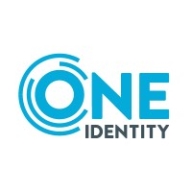

Find out what your peers are saying about Hewlett Packard Enterprise, Cisco, Fortinet and others in Network Access Control (NAC).
Direct comparisons with Forescout reveal up to 30% to 40% difference in cost savings.
We also save money because we increased security, stopped incidents, and reduced breaches and security breaches.
One Identity Active Roles provides excellent reporting and auditing functionality, allowing administrators to track permissions, actions, and responsibilities effectively.
It has saved 90% of the time compared to before.
One Identity has a theme that they want the right people to have the right set of access, and this is what they are able to provide with their tool.
I rate the technical support as one out of ten.
Cisco support has pretty good teams for support and every time we had good answers and we could somehow solve the issues we had.
TAC support from Cisco is a notable feature; it provides very professional support.
Everything is good, and I can give One Identity technical support a rating of ten.
One Identity's support is great.
I rate customer service and support as a seven because, although they are helpful when needed, there can be delays in responding to tickets and finding necessary fixes.
You can run an all-in-one deployment and switch to distributed mode as your company grows, relying on Cisco Identity Services Engine (ISE) to support your scalability needs.
Factors like architecture, business nature, and legal limitations such as GDPR affect it.
However, you can have some latency issues depending on where your devices are.
It is very beneficial for large and complex environments.
If you are a major enterprise customer, it is a matter of scaling out on resources with more memory, disk, and CPU power.
The solution is highly scalable, with a scalability rating of nine.
Cisco Identity Services Engine (ISE) is considered very reliable and stable.
The stability of Cisco Identity Services Engine (ISE) is poor for certain use cases, like authentication.
Sometimes when we have upgrades or failovers with Cisco Identity Services Engine (ISE), we had some minor issues.
There were no major problems with One Identity Active Roles.
Regarding stability, One Identity Active Roles is mostly stable.
We haven't had any glitches.
The whole setup works well with Cisco access points and Cisco switches, but when you have multiple vendors in the environment, such as HP switches or access points like Aruba, you'll find they will not work well with Cisco Identity Services Engine (ISE).
Pricing can be more expensive compared to other vendors, and there is a significant price gap observed, which doesn't seem justified by some specific features.
They are very poor in asset classification and should focus on improving the preauthentication profiling, especially for NAC use cases.
A way to connect to various directories and integrate with cloud directories would be beneficial.
Enhancements to the console are also necessary because it is more confusing than the web interface.
The user interface needs to be more modern and scalable.
Compared to other solutions like HPE ClearPass, Cisco is more costly, and the conversation suggests a possible forty percent price gap compared to competitors.
The license costs can range between $50,000 to $100,000 per year for enterprises.
Cloud solutions are expensive, while on-prem setups with shared environments are cheaper but not effective.
It is quite expensive, costing more than 50 euros per identity.
I think our total was in the seven-figure range for a couple of years of service.
The pricing is high.
Cisco Identity Services Engine (ISE) offers authentication using RADIUS, enhancing network security by separating and segregating networks.
There is value because it helps us secure the network and prevents certain things from happening which could cause financial loss.
The adaptability of Cisco Identity Services Engine (ISE) policy enforcement can fit to the site we have depending on which kind of devices we have on site and then the needs for authentication, granting access and then assigning each device into its correct network for segmentation.
It's improved our security posture. It has limited access to our crown jewels, where all our identities lie within Active Directory.
It helps in removing custom Active Directory delegation, which enhances security by eliminating unnecessary privileges, addressing identity-based breaches by reducing the number of Active Directory delegations.
Dynamic groups are also one of the best features, eliminating the need to add or manage members manually.
| Product | Market Share (%) |
|---|---|
| Cisco Identity Services Engine (ISE) | 22.4% |
| Aruba ClearPass | 21.6% |
| Fortinet FortiNAC | 16.1% |
| Other | 39.9% |
| Product | Market Share (%) |
|---|---|
| One Identity Active Roles | 10.8% |
| ManageEngine ADManager Plus | 12.6% |
| Netwrix Auditor | 9.4% |
| Other | 67.2% |

| Company Size | Count |
|---|---|
| Small Business | 44 |
| Midsize Enterprise | 32 |
| Large Enterprise | 91 |
| Company Size | Count |
|---|---|
| Small Business | 10 |
| Midsize Enterprise | 4 |
| Large Enterprise | 19 |
Cisco Identity Services Engine offers robust authentication, posture profiling, guest and secure access, and dynamic policy management. Known for its seamless integration with Cisco tools and network access control features, it ensures secure device and user authentication across networks.
Cisco Identity Services Engine is renowned for its capabilities in managing authentication, guest access, and policy management through segmentation. Its TrustSec functionality, alongside RADIUS and TACACS+ support, provides enhanced security, further augmented by its ability to operate in diverse environments. Its scalability and integration with Cisco solutions aid in maintaining network visibility and access control. Challenges include the complexity of initial deployments, somewhat cumbersome documentation, and limited integration in multi-vendor environments. While encountering issues in stability and updates, the demand for better analytics and straightforward troubleshooting alongside cost-effective licensing is notable.
What are the key features of Cisco Identity Services Engine?Industries implement Cisco Identity Services Engine primarily for network access control, ensuring secure authentication and segmentation in both wired and wireless environments. Supporting policies like bring-your-own-device and compliance standards, ISE manages identity-based access control, especially beneficial for entities that require detailed user rights management and integration within enterprise networks.
One Identity Active Roles is a highly regarded solution for Active Directory (AD) security and account management. One Identity Active Roles will enhance group, account, and directory management while eradicating the need for manual processes. The end result is a significant increase in the overall speed, efficiency, and security of the organization.
Using One Identity Active Roles, users can:
Managing accounts in AD and Azure AD can be tremendously challenging; continually keeping these important systems safe and secure presents an even greater challenge. Traditional tools can be inefficient, error-prone, and very disjointed. In today’s robust marketplace, organizations are finding it somewhat difficult to keep pace with the constant access changes in a hybrid AD ecosystem. Additionally, there are significant security issues to consider (government compliance, employee status/access changes, and other confidential business requirements). And, of course, there is a requirement to properly manage Active Directory and Azure Active Directory access in addition to managing all the other numerous SaaS and non-Windows applications that organizations use today.
Users can easily automate all of these tedious, mundane administrative tasks, keeping their systems safe and error-free. Active Roles ensures users can perform their job responsibilities more effectively, more efficiently, and with minimal manual intervention. Active Roles was created with a flexible design, so organizations can easily scale to meet your organizational needs, today, tomorrow, and in the foreseeable future.
Reviews from Real Users
A PeerSpot user who is a Network Analyst at a government tells us, “It has eliminated admin tasks that were bogging down our IT department. Before we started using Active Roles, if one of our frontline staff members deleted a user or group, it could take several hours to try to reverse that mistake. Whereas now, the most our frontline staff can do is a deprovision, which just disables everything in the background, but it's still there. We can go in and have it back the way it was two minutes later. Instead of it taking two hours, it only takes two minutes.”
Becky P., Sr Business Analyst at George Washington University, shares, “In addition, with the use of workflows and the scheduled tasks, we were able to automate and centrally manage a number of the processes as well as utilize them to work around other product limitations. Those include, but are not limited to syncing larger groups, which have 50,000 plus members, to Azure AD. We sync up to Azure AD using ARS. If we had not already had ARS in place, it would have been impossible for us to have done so in the time period we did it in. We did it in under six months. ARS probably saves us at least two weeks out of every month. It's reduced our workload by 50 percent, easily.”
We monitor all Network Access Control (NAC) reviews to prevent fraudulent reviews and keep review quality high. We do not post reviews by company employees or direct competitors. We validate each review for authenticity via cross-reference with LinkedIn, and personal follow-up with the reviewer when necessary.